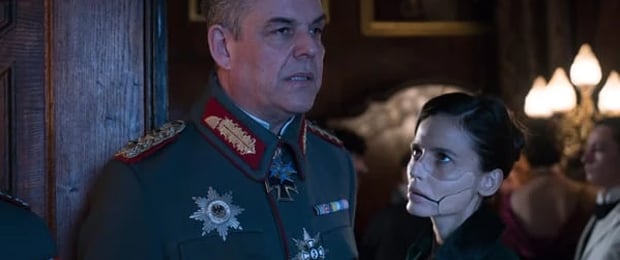It often happens that superhero stories are inspired by real people and even integrate them into fiction. Sometimes even if it means generously twisting reality… Small example with Wonder Woman.
Released in 2017 and one of the big hits of the year at the international Box Office with more than $823 million in revenue, Wonder Woman signed by Patty Jenkins largely allowed its main performer, Gal Gadot, to see her career definitively established. in orbit.
Written by Allan Heinberg, Zack Snyder and Geoff Johns, the film deals with the arrival of the Amazon warrior in the world of Men during the First World War, to save the populations from the manipulations of the Greek god of war, Ares.
Almost all of the characters appearing in Wonder Woman are based on those who originally appeared in DC comics. But there is one notable exception: General Erich Ludendorff, played in the film by Danny Huston. This is not a creation from the comics, but of a real person, a prominent figure in the German army during the First World War.
Warner Bros. / Wikicommons
In the film, General Erich Wilhelm Ludendorff, an officer in the Imperial German Army, is the employer of scientist Isabelle Maru, aka Dr. Poison, a Spanish-born chemist creating deadly gases that even gas masks cannot not filter. Ludendorff is the main antagonist of Wonder Woman, since it is he who is convinced to be the god of war that the superheroine faces. And over which she ends up triumphing, finishing him off thanks to lightning.
Far from this superheroic and 100% fictional ending, the authentic General Ludendorff actually played a major role in the war of 14-18, since he served as general-in-chief of the German armies from 1916 to 1918.
Inseparable from General Von Hidenburg, they gradually became the real decision-makers in Germany after the latter was named supreme leader of the German army, replacing Falkenhayn, dismissed in August 1916.

Warner Bros.
Apostle of total war against Great Britain using the submarine fleet to excess, Ludendorff was one of the main architects of the Treaty of Brest-Litovsk signed in 1917 with Russia, then in the midst of the Bolshevik revolution, thus allowing him to repatriate German divisions to the West in an attempt to put an end to France and its allies.
After the war, he supported the National Socialist movement, until the famous beer hall putsch orchestrated by Adolf Hitler in Munich and which turned into a fiasco in November 1923. Hitler was sentenced to three years of detention at the Landsberg fortress , Ludendorff was acquitted for lack of evidence and because of his service during the war of 14-18.
Elected deputy within the nationalist group in the Reichstag between 1924 and 1928, he retired from political life that year. Enough to devote himself above all to the neopagan movement that he had founded with his wife in 1925. His quarrel with Hitler did not prevent the latter, Chancellor of Germany since 1933, from granting him a national funeral when he died in December 1937 , at the age of 72.
